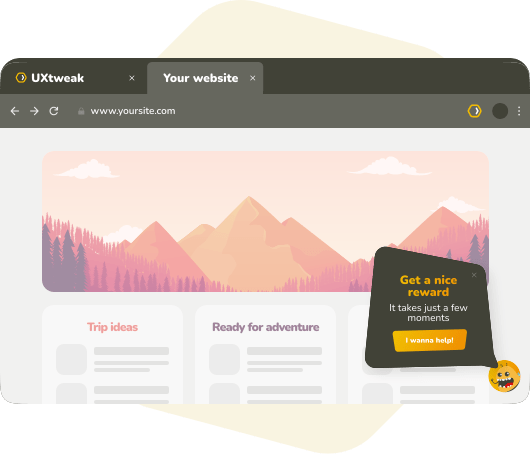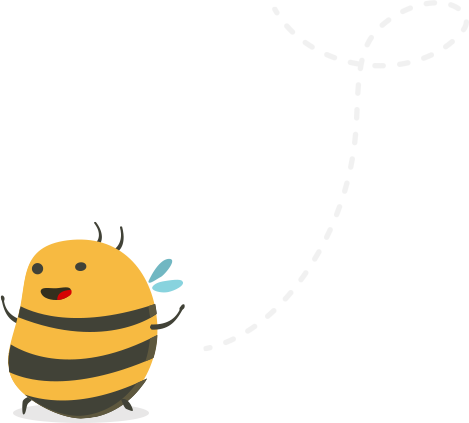Recruiting the right participants for your user interviews is key to ensuring that the insights you gather are relevant and actionable. Conversely, talking to people who do not represent the target audience of your product can result in wasted resources and useless findings.
This guide will walk you through the best practices and strategies to effectively recruit participants for user interviews. We’ll explain the recruitment process step-by-step and give actionable tips for increasing the engagement of your participants.
How is recruitment for user interviews different?
Recruiting for user interviews requires higher engagement than other types of research. Since these interviews are often in-depth, participants need to be representative of your product’s target audience and interested in providing valuable insights.
Unlike surveys, user interviews demand more time and interaction, making the selection of participants crucial to the success of your research.
That’s why it’s important to approach the process of recruiting for user interviews strategically, with a clear understanding of who you’re looking to talk to.
Channels for finding user interview participants

1. Recruitment agencies and user panels
The most straightforward and fool-proof method is delegating your recruiting to an external user panel or recruiting agency. While the agencies may be a bit on the pricier side, user panels are an affordable option that many modern research platforms offer.
Pros
- Expertise in finding suitable candidates
- Saves time and effort in screening
- High reliability
- Quality guarantee
Cons
- Can be more expensive than other recruiting methods
2. Customer databases
Customer databases consist of information about individuals who have interacted with your product or service in some way, such as making a purchase, subscribing to a newsletter, participating in previous user tests, or using a trial version of your product.
Pros
- Easy access to existing users
- Saves time and effort in screening
- Participants are already familiar with the product
Cons
- Limited to current customers
- Potential for biased feedback
3. Industry conferences and meetups
Industry conferences and meetups are excellent venues for recruiting participants for user interviews. These events gather enthusiasts who are actively engaged in a specific field or industry, making them a rich source of potential interviewees.
Pros
- Access to industry-specific professionals
- Opportunities for networking
Cons
- Time-consuming
- May not always yield a needed number of participants
4. Social media
Social media is another great channel where you can try to look for user interview participants. There are multiple ways how you can recruit through social media, including paid ads, organic posting, communities of people who share similar interests, etc.
A great benefit of this method is that there are multiple platforms you can try to recruit with, so you really have a chance of finding the right number of targeted participants.
Pros
- Wide reach
- Cost-effective
Cons
- Participants may not be as reliable
- Screening can be more challenging
5. Pop-up widgets
Pop-up widgets are a convenient and direct way to recruit participants for user interviews by capturing the attention of visitors while they are engaged with your website. These widgets can be strategically placed on your site to prompt users to join your research efforts.
This is a quick way to transform your real website visitors, who probably match your target audience, into interview participants.
Pros
- Directly targets users on your site
- Immediate engagement
Cons
- Limited to current site visitors
- May interrupt user experience

UXtweak Onsite Recruiting Widget
7 steps to recruit participants for user interviews

Step 1: Define the target user
Before diving into recruitment, clearly define who your target users are. This involves creating detailed user personas that represent different segments of your user base. A user persona is a fictional character that embodies the characteristics, needs, goals, and behaviors of a particular group of users.
Start by researching your audience. Look at demographics, behaviors, and motivations. Understand their pain points and what drives their decision-making. You may need to conduct some additional user research for this.
Use the research data to create your personas. These personas will guide your recruitment process by ensuring you target the right people for your interviews.
Learn how to create a persona in this quick video ⬇️
Step 2: Determine the research scope
Understanding the scope of your research is will help you determine the right number of interview participants.
Decide how many interviews are necessary to gather meaningful insights. This depends on your research goals, the complexity of the product, and the diversity of your user base. We recommend to over-recruit by 10% to be safe.
Some participants may drop out or not qualify for the interview eventually and having baup will help to ensure that you gather enough relevant data.
Step 3: Choose a recruitment channel
Select the most appropriate channels to find participants who match your target personas. Once again, some of the options include user panels, customer databases, industry-specific events, social media, and pop-up widgets.
Step 4: Design a screening questionnaire
According to our research, failing to properly screen your participants is the first most common mistake in research recruiting.
A screening questionnaire is essential to ensure that your participants meet the criteria defined in your UX personas. Good screeners will help you eliminate irrelevant and fraudulent participants, ensuring the integrity of the collected insights.
Learn how to create a good screening questionnaire:
Step 5: Prepare an incentive plan
Offering incentives is a great way to motivate people to participate in your interviews. Consider providing monetary rewards, gift cards, discounts, or maybe even exclusive access to new features. Offer something that holds true value for your target audience, and it won’t be a problem to attract the right people.
Make sure to communicate the incentive clearly in your recruitment messages to attract more participants.
And if you’re recruiting participants from a User Panel, no need to worry, as we’ll take care of the incentives for you!
Step 6: Prepare the interview schedule
Offer multiple time slots for interviews to accommodate participants’ availability. Consider using scheduling tools to automate this process. If you’re conducting your interviews with an online research tool like UXtweak, you can easily define your schedule during setup with our calendar-like organizers.
Don’t forget to send confirmation emails and reminders to participants to reduce no-shows. Another great tip, is to schedule each interview with buffer time so that you have some space to recharge and prepare for the next talk without rushing.
Step 7: Recruit & screen the participants
Once you have your plan in place, start recruiting and screening participants. Use your chosen channels to reach out to potential participants. Make your communication clear and engaging.
Use the screening questionnaire to filter out unsuitable candidates. Be prepared to adjust the schedule if necessary, especially for participants recruited via social media, who may need more flexibility.
5 tips to increase participant engagement during user interviews

1. Create a comfortable environment
Make participants feel at ease by choosing a comfortable setting and building rapport at the beginning of the interview. Start with a small talk, ask them about their day and explain how the interview is going to go.
It’s essential for the participant to feel comfortable in order to express themselves freely, voice all their feedback and be honest when answering your questions. Remain professional but don’t forget to smile, maintain eye contact, and show genuine interest in their responses.
2. Respect their time
Be mindful of the interview length. Stick to the planned duration and avoid unnecessary digressions. Focus on the most critical questions and stick to the interview guide.
A well-structured guide or even a script can help keep the conversation on track. Learn how to write a user interview plan.
3. Be transparent
Transparency fosters trust, which is essential for honest and open communication. Clearly articulate why you are conducting the interview and how the participant’s feedback will be used.
This helps participants understand the importance of their input and feel more invested in the process.
4. Ensure confidentiality
Reassure participants that their responses will be kept confidential and explain how their data will be used and protected. Elliviating privacy concerns will also help you foster trust and open communication. Sign consent forms before you start the interview and don’t record anything without the participants permission.
5. Practice active listening
Show that you are actively listening by nodding, summarizing key points, and asking followup questions. This demonstrates respect and encourages participants to share more openly.
Ready to recruit? Try UXtweak’s User Panel!
Looking to recruit participants for your user interviews quickly and hassle-free?
Let us do it for you! Recruit as many targeted participants as you need from UXtweak🐝 User Panel.
Our panel experts will help to ensure the reliability of collected feedback by providing a study audit and checking the quality of your respondents.



